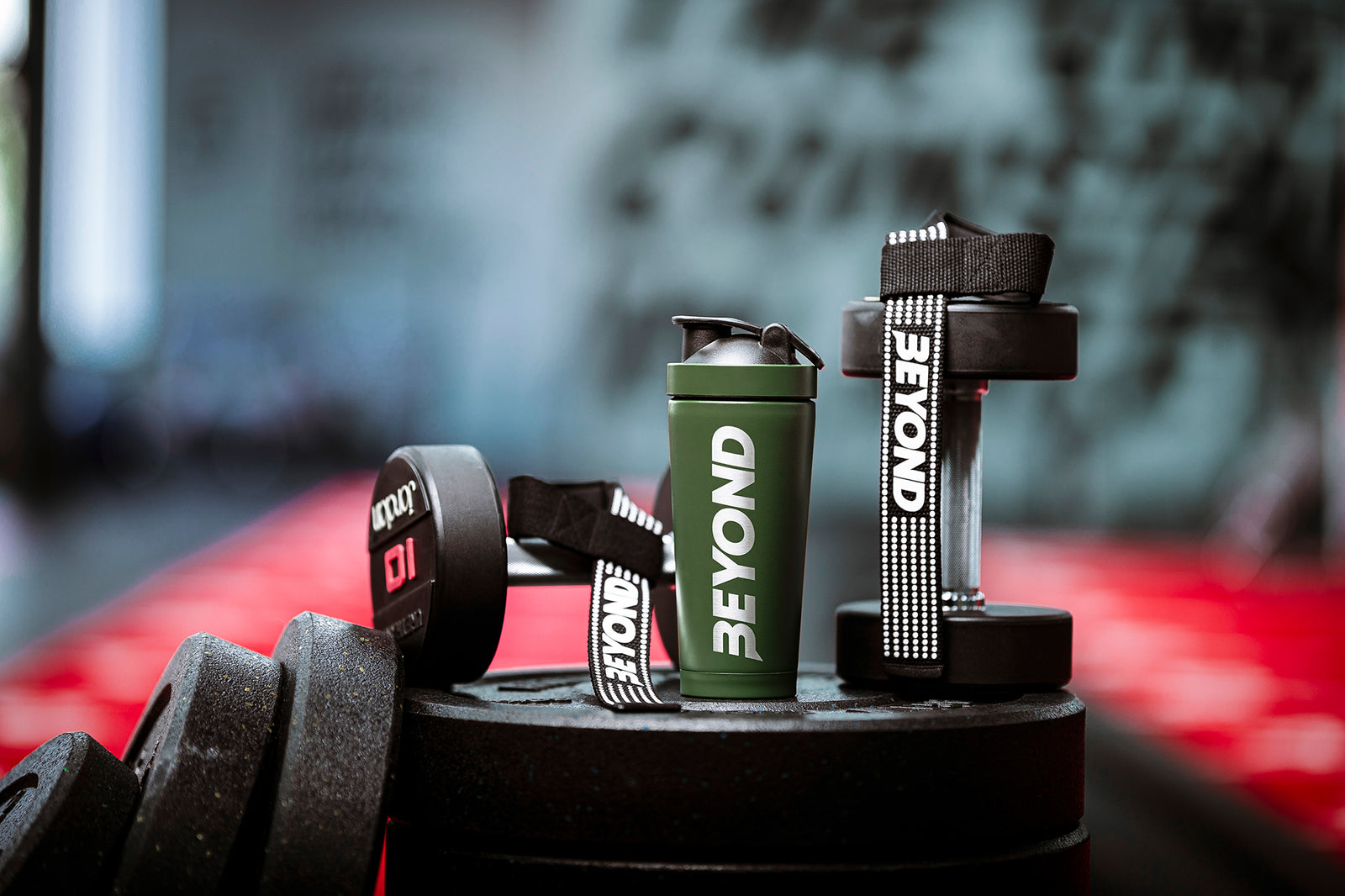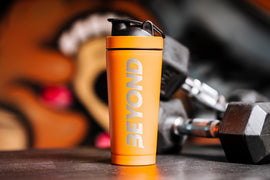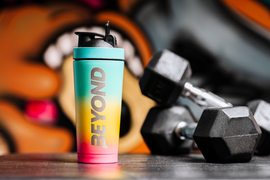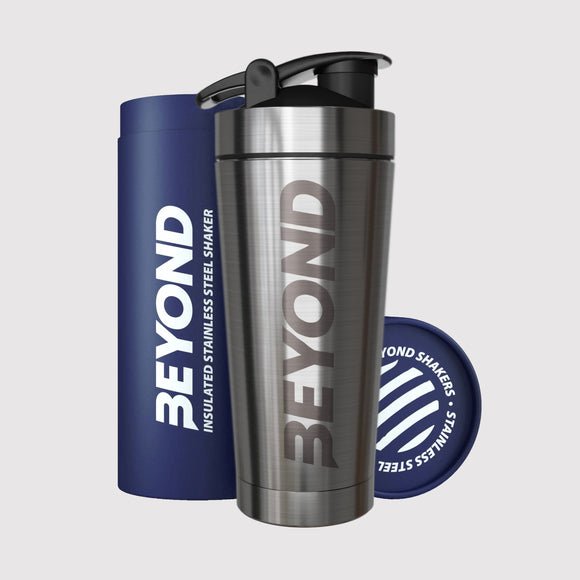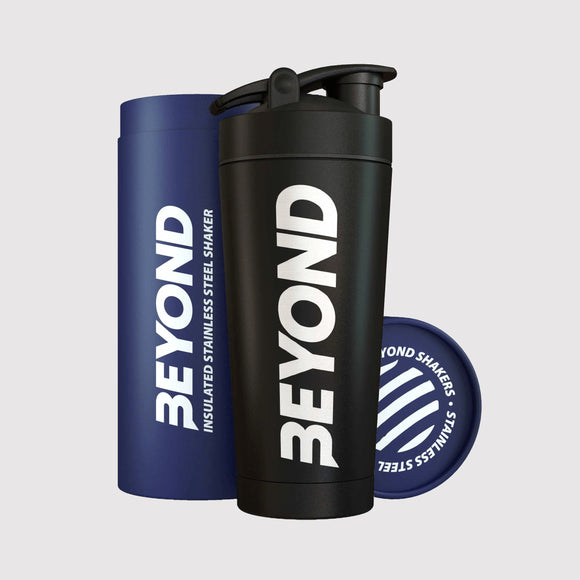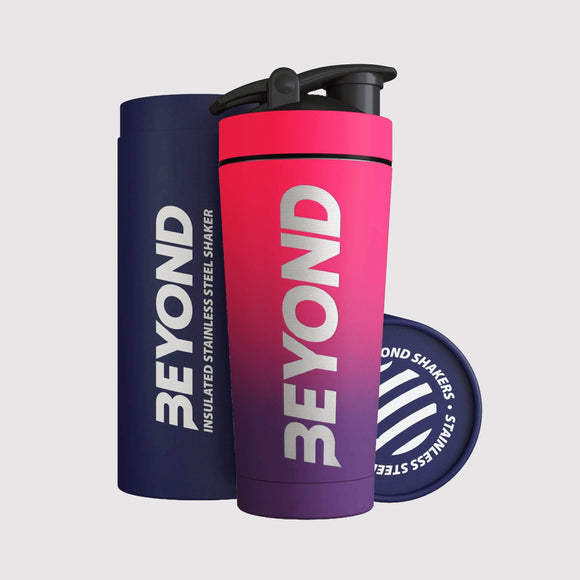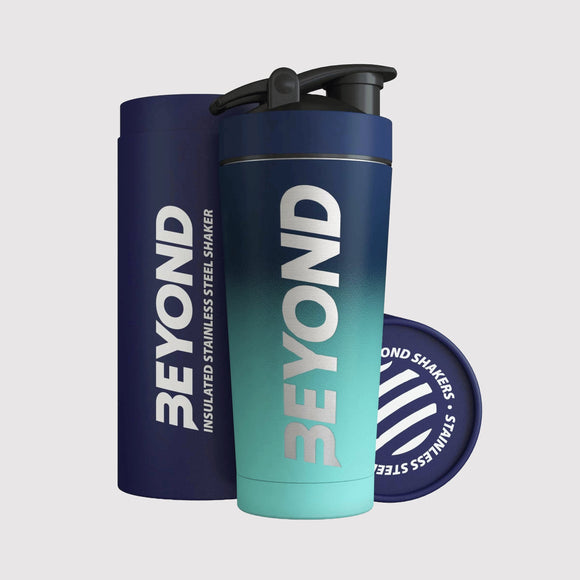Both meals and protein shakes have their advantages and disadvantages, and it's important to understand the differences between the two before deciding which one is the best fit for your lifestyle and goals. In this discussion, we will compare and contrast meals and protein shakes, looking at their nutritional value, convenience, and effectiveness in meeting fitness goals.
In this article, you’ll find:
- Is it healthy to replace a meal with a protein shake?
- Is it better to replace lunch or dinner with a protein shake?
- Is it better to skip breakfast or have a protein shake?
- Is it OK to replace breakfast with a protein shake?
- What do you eat with a protein shake?
- Is shaker necessary for protein shake?
- FAQs about meal vs protein shake.
Is it healthy to replace a meal with a protein shake?
For those who want to lose weight or gain muscle, replacing meals with protein shakes has become a common technique. Yet, it is critical to recognize the potential advantages and disadvantages of replacing a meal with a protein shake.
The Advantages of Using a Protein Shake Instead of a Meal
Convenience: Protein shakes are quick and easy to prepare, making them an ideal choice for those who lead a hectic lifestyle.
Weight loss: Replacing a meal with a protein shake can help you cut calories and lose weight.
Muscle building: Protein shakes can give the nutrients required by the body for muscle growth and recovery after exercise.
Increased nutrient intake: Protein shakes can assist people in meeting their daily protein requirements, which is vital for general health.
Disadvantages of Using a Protein Drink Instead of a DinnerNutrient deficiency: While protein shakes can offer protein, they may lack other vital elements found in entire foods.
Unsustainable: Replacing meals with protein shakes may not be long-term sustainable, potentially leading to a lack of diversity and dissatisfaction with the diet.
Cost: Protein smoothies can be costly, especially if eaten on a daily basis in place of full foods.
Digestive difficulties: After taking protein smoothies, some people may develop digestive issues such as bloating and gas.
If done right, replacing a meal with a protein shake can be a healthy option. But, it is critical to select a high-quality protein powder and maintain a balanced diet with proper fiber, vitamins, and minerals. Before making any big dietary adjustments, like with any other dietary modification, it's always a good idea to consult with a healthcare professional.
Is it better to replace lunch or dinner with a protein shake?
Replacing Lunch with a Protein Shake
Substituting a protein shake for lunch can be an effective approach to minimizing calorie intake and encouraging weight loss. Lunch is often a meal consumed on the run, which can lead to poor choices. A protein shake may give a quick, nutritious meal that is quick to make and easy to take on the go. But, to ensure a well-balanced diet, make sure the protein shake contains all of the necessary components, including vitamins and minerals.
Replacing Dinner with a Protein Shake
Replacing dinner with a protein drink can also help you lose weight by lowering your calorie consumption. Dinner, on the other hand, is a larger meal than lunch and may offer more opportunities for mingling and enjoying meals with family or friends. Also, taking a protein shake for dinner may not be as filling as a regular meal, leading to overeating later in the evening.
To summarise, whether it is better to replace lunch or dinner with a protein shake is a matter of personal preference and lifestyle. These options can give a quick, low-calorie supper that aids in weight loss. However, it is critical to ensure that the protein shake contains all of the necessary nutrients and to avoid taking it as a long-term substitute for normal meals.
Is it better to skip breakfast or have a protein shake?
The most essential meal of the day is not breakfast. Breakfast eaters are healthier than those who do not, according to experiments. You may skip breakfast as part of your daily routine or a few times each week, depending on your intermittent fasting schedule. Protein shakes have become a popular substitute, but which is better: skipping breakfast or having a protein shake? We look at the advantages and disadvantages of each solution.
Pros and Cons of Skipping Breakfast:
| Pros | Cons | ||
|
|
Pros and Cons of Having a Protein Shake for Breakfast:
| Pros | Cons |
|
|
Skipping breakfast or drinking a protein shake is a personal choice that is influenced by personal tastes and lifestyle variables. Protein smoothies should be produced with complete foods and consumed in moderation while skipping breakfast should be considered only in special situations.
Is it OK to replace breakfast with a protein shake?
Protein intake should be multiplied by 0.36 grams per kilogram of body weight, with sedentary males consuming 56 grams per day and active women consuming 46 grams. Depending on your fitness goals, you might want to aim for 0.5 grams of protein per pound of body weight. Calorie consumption is also affected by your body weight and fitness goals, so it is critical to consume a certain number of calories every day to guarantee that your body receives enough nutrients.
In some cases, replacing breakfast with a protein shake is fine; however, it is important to do it correctly and with care for your unique needs. Here are some dos and don'ts to consider:
| Dos | Don'ts |
|
|
It's crucial to remember that everyone's nutritional needs vary, and some people may require a more substantial breakfast to feel full and energized throughout the day. Thus, while replacing breakfast with a protein shake is acceptable on occasion, it may not be the ideal option for everyone.
What do you eat with a protein shake?
What you eat with a protein shake depends on your personal preferences and nutritional goals. Here are some options for what to eat with a protein shake:
| Fruits and Vegetables | Nutt Butter | Dairy Products | Other Options |
|
|
|
|
Ultimately, what you eat with your protein shake should be based on your individual dietary needs and goals. It's important to choose whole foods that are nutrient-dense and complement the protein shake to ensure you're getting all the nutrients your body needs.
Is shaker necessary for protein shake?
Yes, a shaker is a useful tool for preparing a protein shake, but it's not always necessary. Here are some potential benefits of using a protein shaker:
Quick mixing: A metal shaker bottle is a quick and easy way to mix protein powder with a drink, making it a good option for folks who are short on time.
Smoother: A protein shaker's built-in mixing ball or mesh screen can help create a smoother, more consistent texture for your shake, making it more delightful to drink.
Easy to carry: A protein shaker is portable and can be brought with you on the go, whether you're going to work, the gym, or on vacation.
Flexible: Protein shakers are versatile since they may be used to mix a range of protein powders, including whey, casein, soy, and plant-based choices.
Price: Buying a high-quality protein shaker will help you save money over time by removing the need to buy pre-made shakes or smoothies from shops or cafes.
Customizable: With a protein shaker, you have complete control over the nutrients and can adjust your smoothie to your taste and dietary needs.
For those who want to include protein smoothies to their diet, a protein shaker might be a beneficial tool. It is a popular choice among fitness enthusiasts and health-conscious consumers due to its convenience, consistency, portability, and personalization choices.
FAQs about Meal Vs Protein Shake
What is the difference between a meal and a protein shake?
A meal is a complete food that contains a variety of macronutrients (carbohydrates, proteins, and fats) and micronutrients (vitamins and minerals), while a protein shake is a supplement that contains a high amount of protein and is often consumed as a quick and convenient source of protein.
Are protein shakes healthier than meals?
Not necessarily. A protein shake can be a healthy addition to a balanced diet, but it should not be the only source of nutrients. A well-balanced meal provides a range of nutrients that are important for overall health.
Are protein shakes suitable for everyone?
Protein shakes can be consumed by most people, but those with certain medical conditions (such as kidney disease) should consult with a healthcare professional before adding them to their diet.
Find similar articles
Best Protein ShakerBest Protein Shaker BottleBPA Free Protein ShakerGym Protein ShakerInsulated Protein ShakerMetal Protein Shakers Are BetterProtein Powder BottleProtein ShakerProtein Shaker BottleShaker BottleStainless Steel Protein ShakerStainless Steel Protein Shaker Vs Plastic Protein Shaker